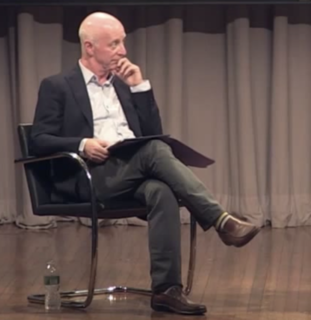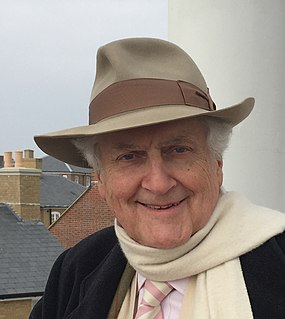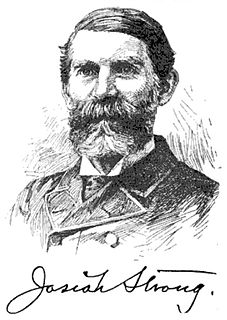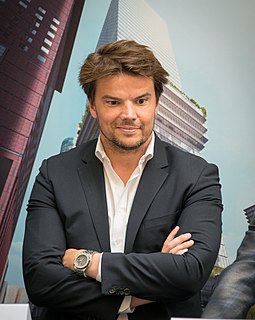A Quote by Ma Yansong
The difficulty with big cities does not lie in skyscrapers or high-rises per se; rather, it is the values concealed within those buildings which lead to the loss of our humanity and our sense of spiritual emptiness.
Related Quotes
It is not our affluence, or our plumbing, or our clogged freeways that grip the imagination of others. Rather, it is the values upon which our system is built. These values imply our adherence not only to liberty and individual freedom, but also to international peace, law and order, and constructive social purpose. When we depart from these values, we do so at our peril.
Our first duty to liberty is to keep our own. But it is also our duty - as Europeans - to keep alive in the Eastern as well as the Western half of our continent those ideas of human dignity which Europe gave to the world. Let us therefore resolve to keep the lamps of freedom burning bright so that all who look to the West from the shadows of the East need not doubt that we remain true to those human and spiritual values that lie at the heart of European civilization.
The way our big cities change sucks. The beauty of cities was that they were edgy, sometimes even a little dangerous. Artists, poets, and activists could come and unify and create different kinds of scenes. Not just fashion scenes, scenes that were politically active. Big cities are getting so high-end oriented, business corporate fashion, fashion not in an artistic sense but in a corporate sense. For me that edgy beauty of cities is lost, wherever you go.
I wish more of us could understand that our increasing isolation, no matter how much it seems to express pride and self-affirmation, is not the answer to our problems. Rather, the answer is a revival of our ancient commitment to God, who rules over all the peoples of the world and exalts no one over any other, and to the moral and spiritual values which were once legendary in America. We must reach out our hand in friendship both to those who would befriend us and those who would be our enemy.
We proclaim human intelligence to be morally valuable per se because we are human. If we were birds, we would proclaim the ability to fly as morally valuable per se. If we were fish, we would proclaim the ability to live underwater as morally valuable per se. But apart from our obviously self-interested proclamations, there is nothing morally valuable per se about human intelligence.
In this new war, our enemy's platoons infiltrate our borders, quietly blending in with visiting tourists, students, and workers. They move unnoticed through our cities, neighborhoods, and public spaces. They wear no uniforms. Their camouflage is not forest green, but rather it is the color of common street clothing. Their tactics rely on evading recognition at the border and escaping detection within the United States. Their terrorist mission is to defeat America, destroy our values and kill innocent people.
In my path, three things are really important. One is associating with people who inspire us with their positive influence. The company we keep is very important. Number two is our spiritual practice. Putting aside sacred time every day to make that journey within, to tune into the frequency of our true nature and the love and the grace that is within us. Number three is to try living with ethical, moral and spiritual values, which culminates in unselfish service.






































